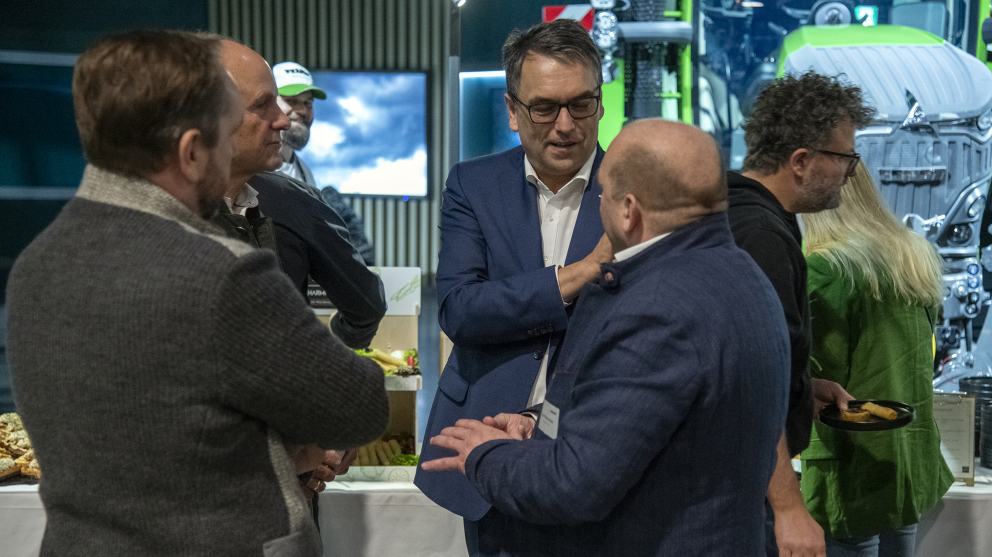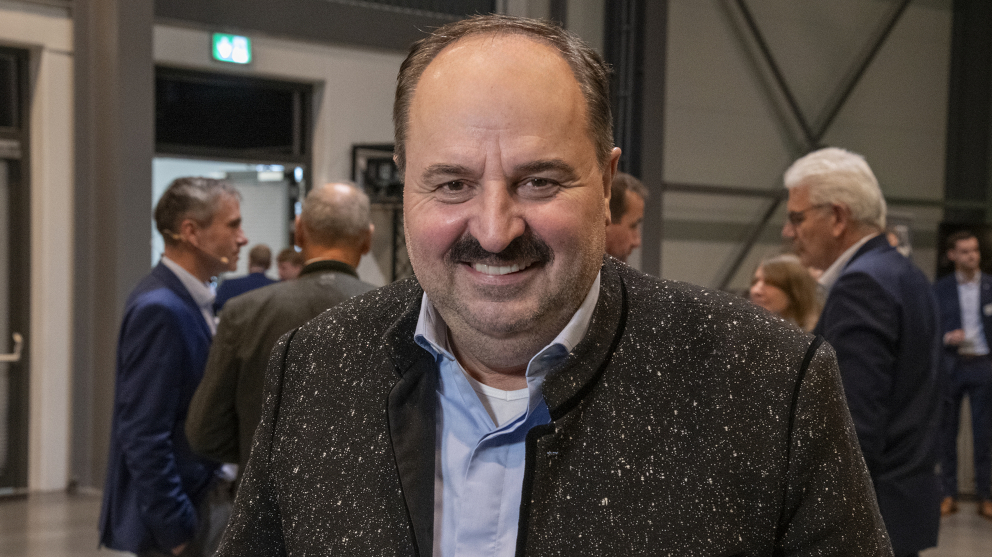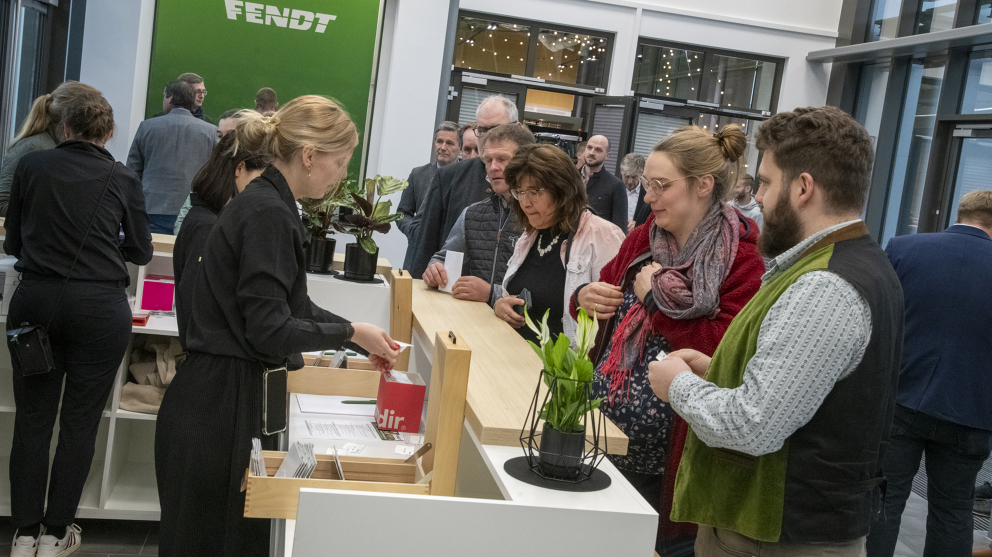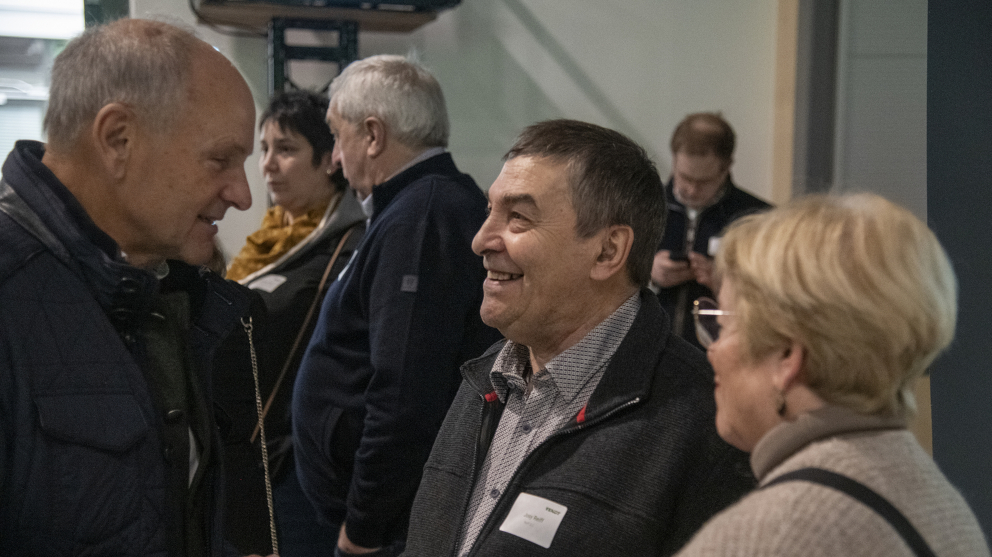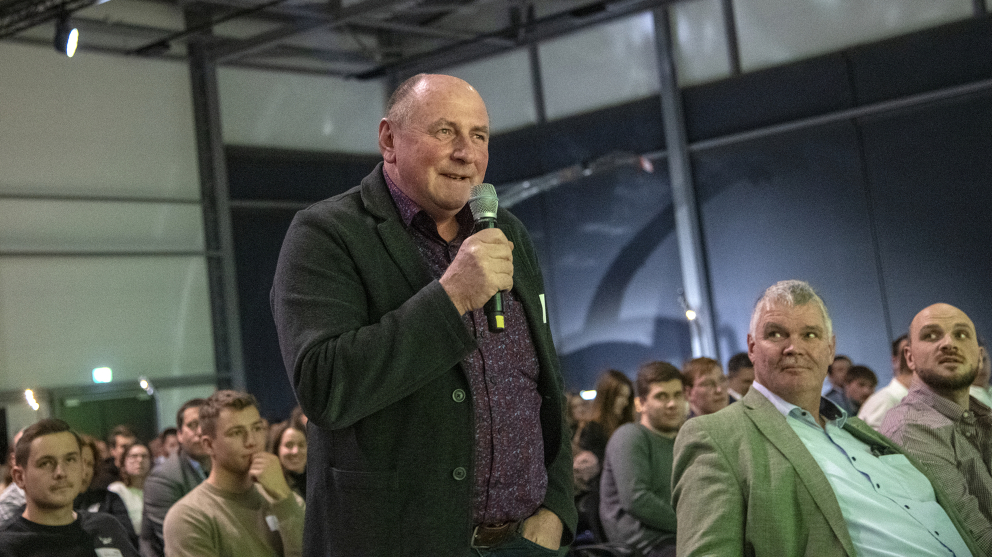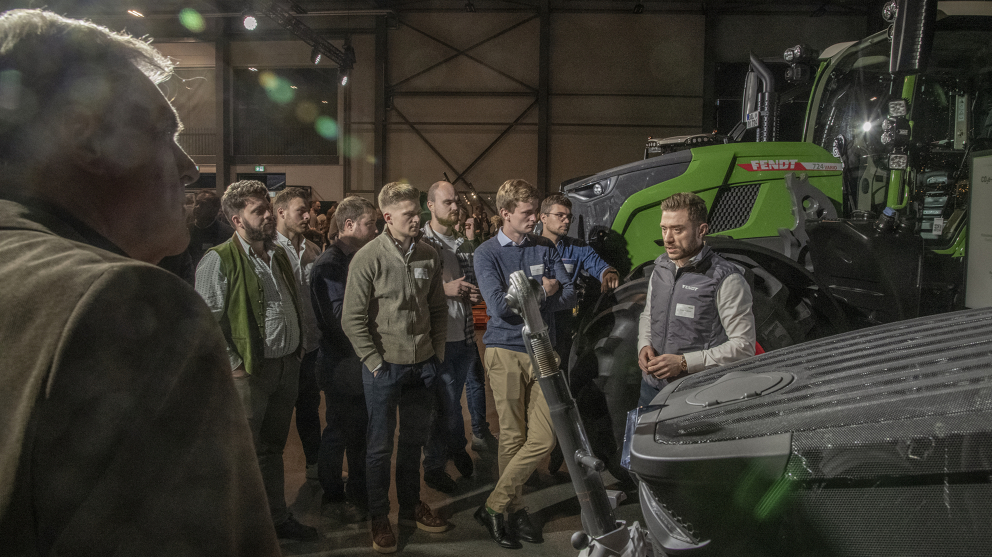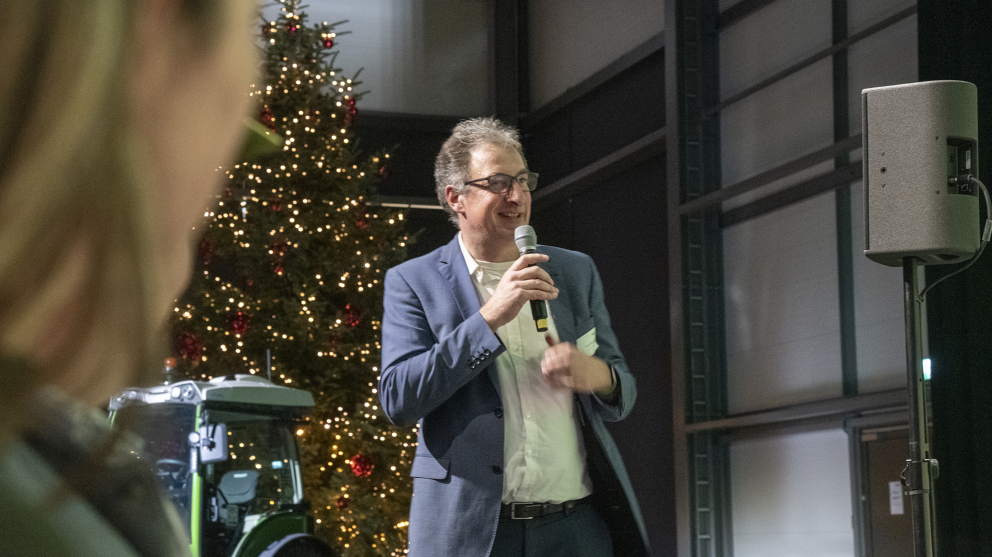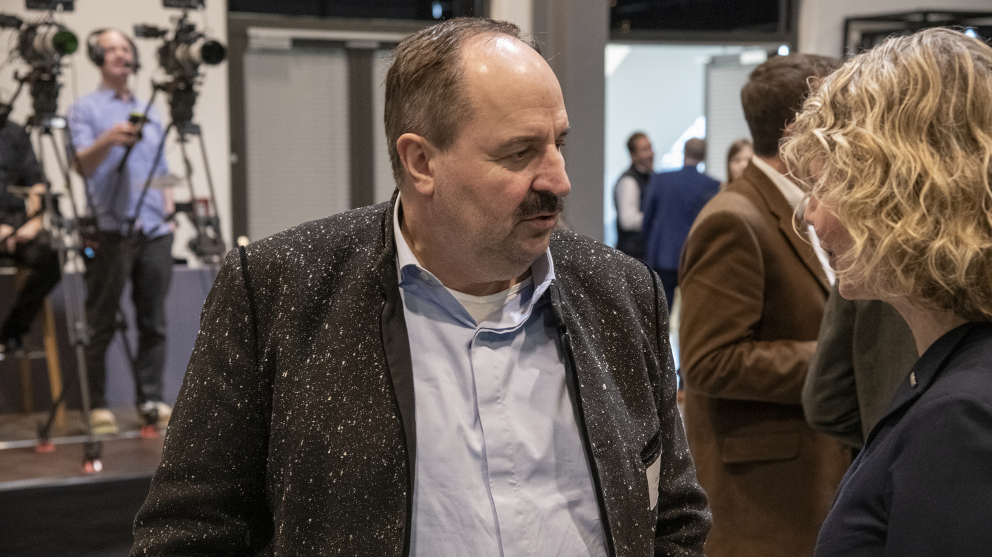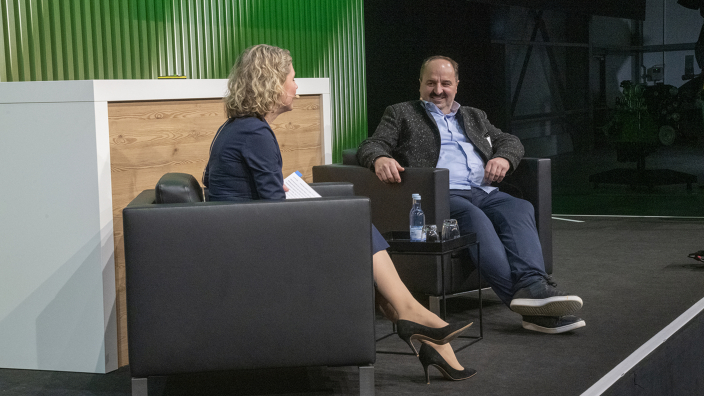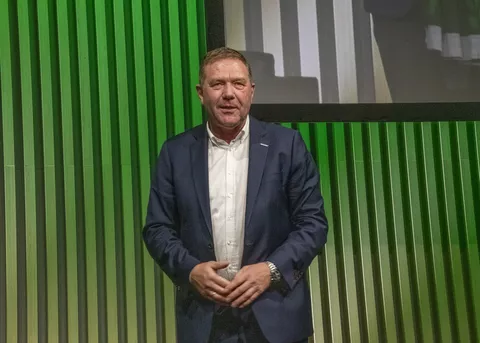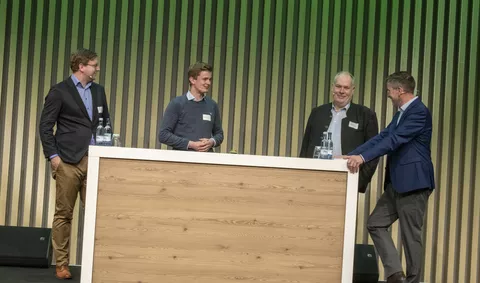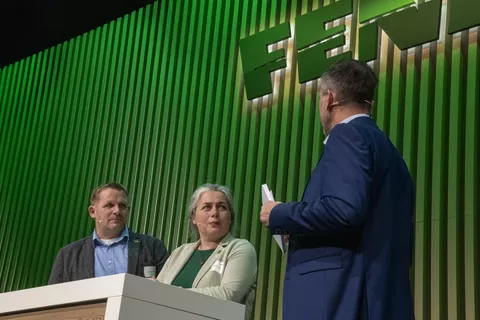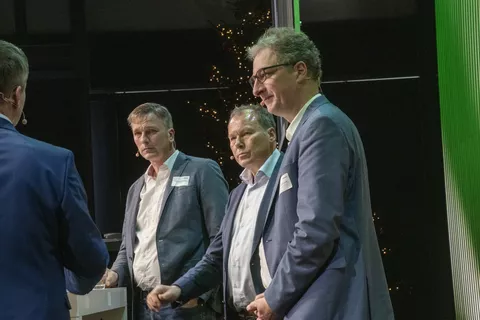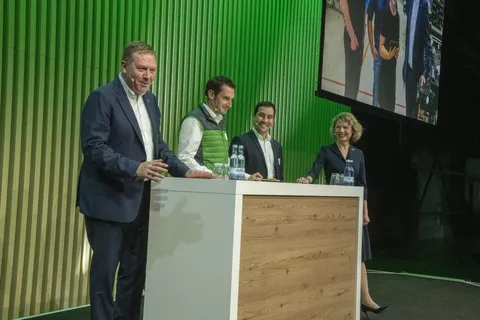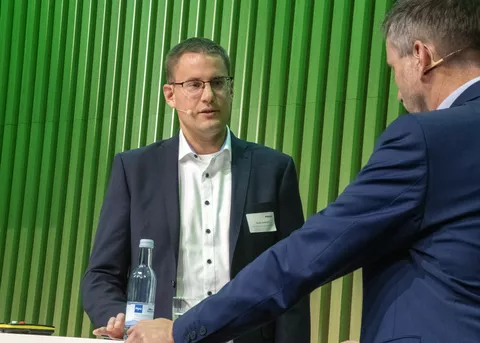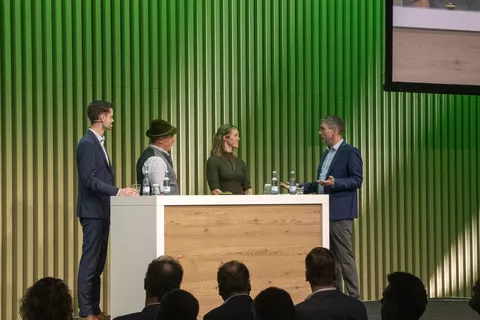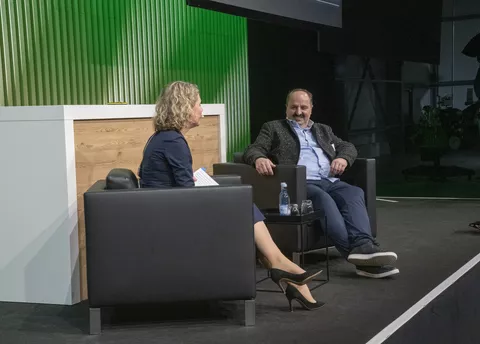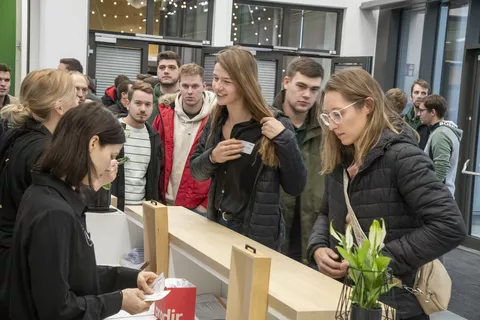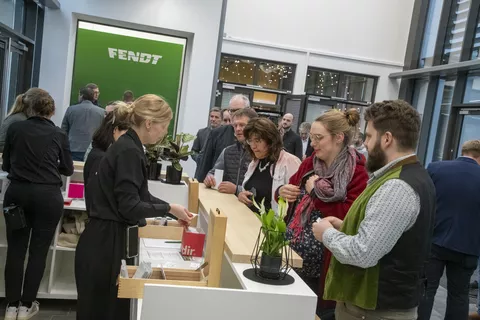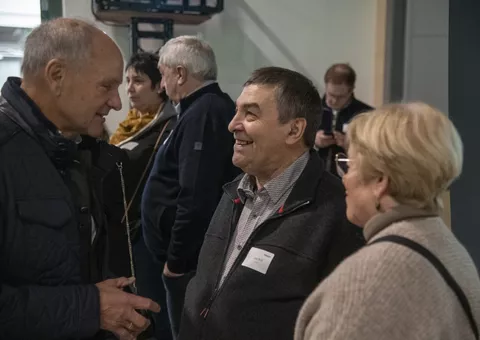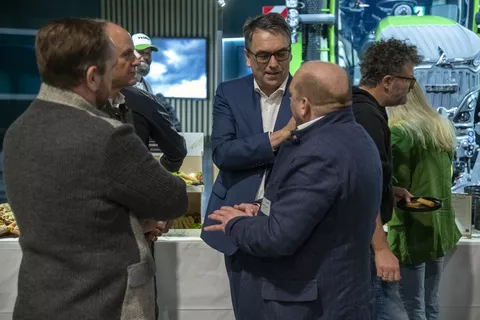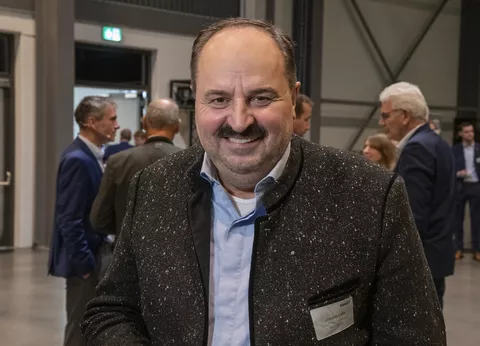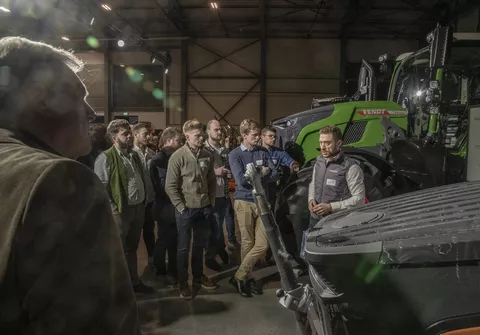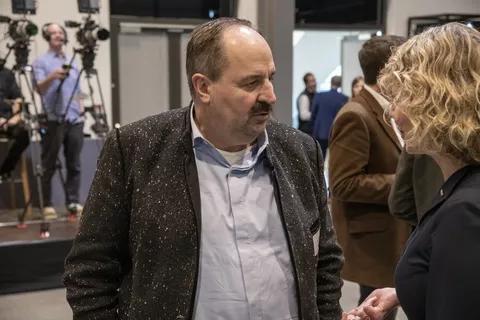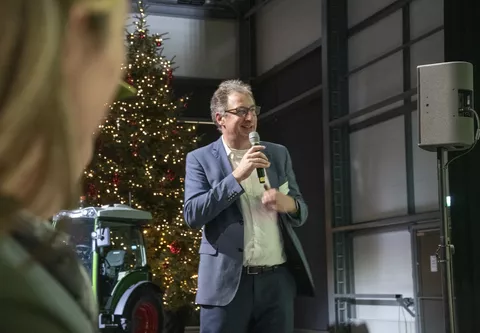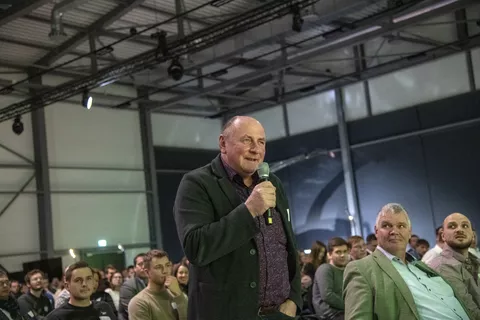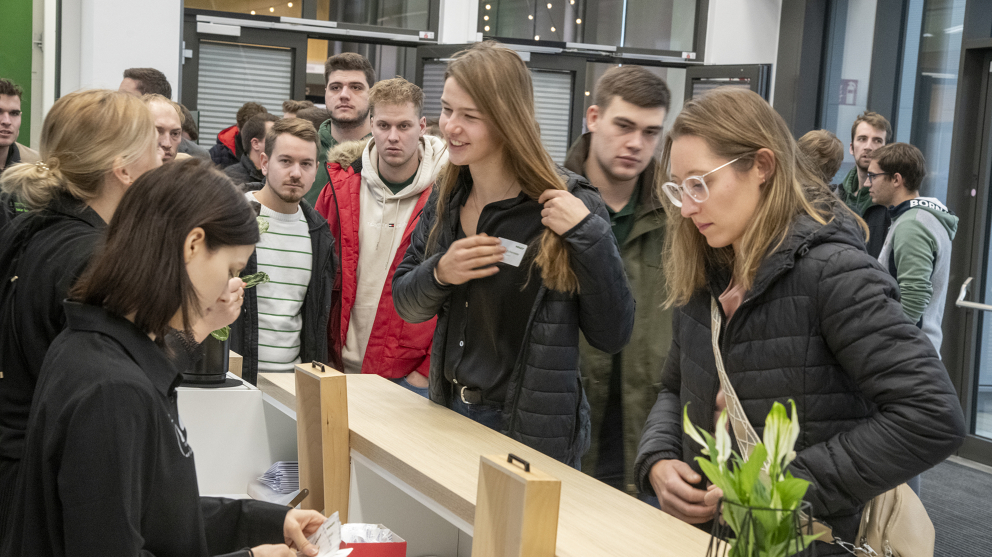
Farmers are already feeling the effects of climate change, along with challenges such as rising fertiliser and energy costs, fluctuating prices and social demands for change in agriculture. At the third Fendt Sustainability Forum, 12 farmers presented the new paths they have taken to position themselves for the future. The closing keynote speech by Johann Lafer, who grew up on a farm, was particularly inspiring.
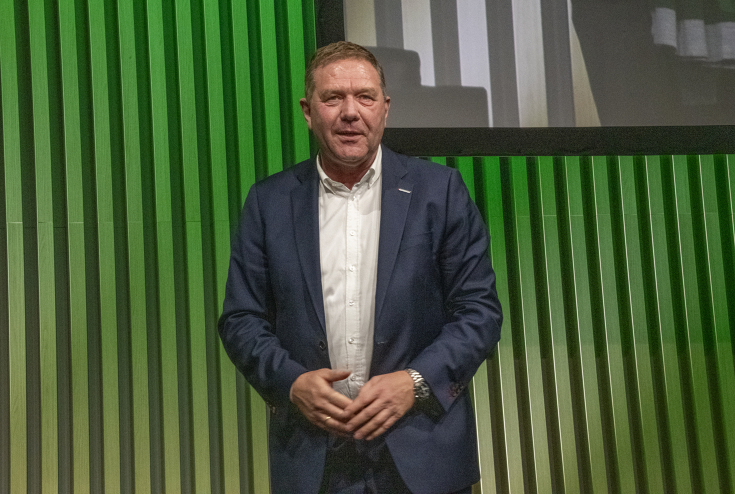
Christoph Gröblinghoff (Chairman of the Fendt Management Board) welcomed the guests with his thoughts on the topic of opportunities
"Chances - that's a motivational term. It is forward-looking and points to the possibility of positive development. If I try to see opportunities today, it is because of those of us who have come together today for the Fendt Sustainability Forum. By that I mean the speakers who are presenting their solutions today, as well as you in the audience," said Christoph Gröblinghoff, Chairman of the Fendt Management Board, welcoming the guests to the Fendt Sustainability Forum. "We farmers are connected to the farm and the soil. We have values and principles. And we have a mind of our own. But this is also an opportunity today. We no longer doubt climate change. We have always lived with erratic weather, and increasingly with extreme weather. We are part of the solution by producing food locally, generating renewable energy and maintaining cultural landscapes. We are the ones who bind CO2 in the soil and implement animal welfare.
How arable farmers are breaking new ground
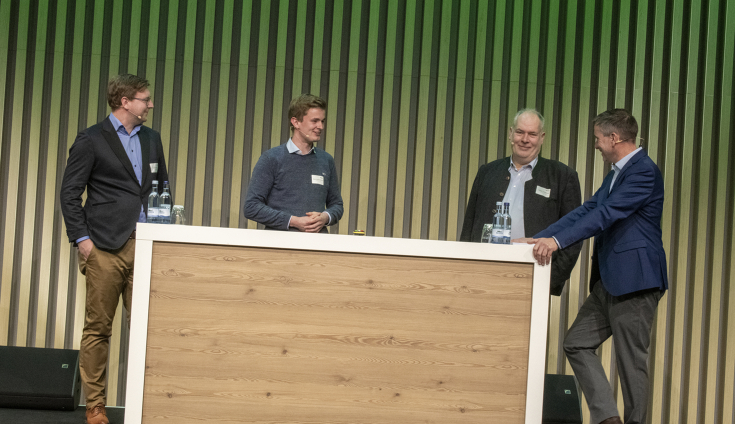
(ltr) Arable farmers Jan Brinkmann, Markus Schulze Wehninck and Karsten Twietmeyer have reorganised their farms
Wine from the Teutoburg Forest in Lower Saxony, vegetables from the pork heartland of Münsterland and new crop rotations in Germany's Uckermark region. These are just some of the ways in which three farmers, Jan Brinkmann, Markus Schulze Wehninck and Karsten Twietmeyer, have taken new approaches to better position their businesses for the future. Karsten Twietmeyer was quick to respond to declining rainfall and has been experimenting with new crops for many years, including pulses, fava beans, quinoa and, more recently, soya. For Jan Brinkmann, climate change and changes in the legal framework for wine-growing led him to switch from pigs to wine. Markus Schulze Wehninck switched to vegetables such as potatoes, onions and spinach, which also meant investing in new technology.
Fewer pigs, more value
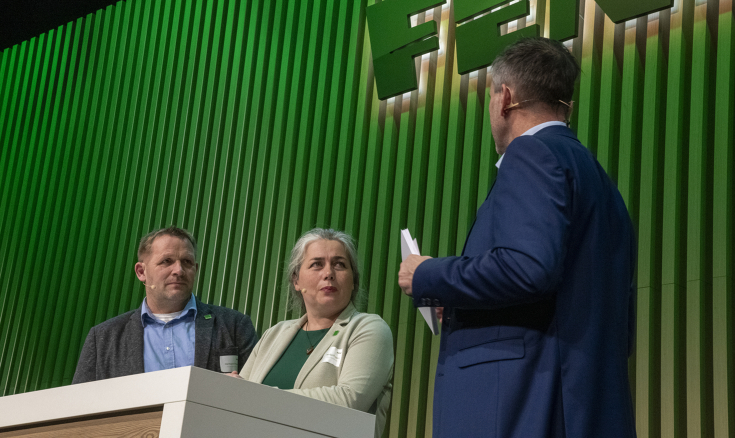
Investment decisions are not easy for livestock farmers these days. When the Poppen family took over the farm, they knew something had to be done. With conventional pig farming, the farm was not fit for the future. By switching to organic farming, Nadja and Hermann Poppen broadened their focus: fattening pigs, suckler pigs, direct marketing, different breeds and, since the summer of 2024, a food truck.
Another highlight: the boar Count Bobby von Sonnenschein has his own Instagram channel and is now an image ambassador for regional agriculture.
Instagram channel boar Count Bobby
Green energy - sun, manure and hydrogen
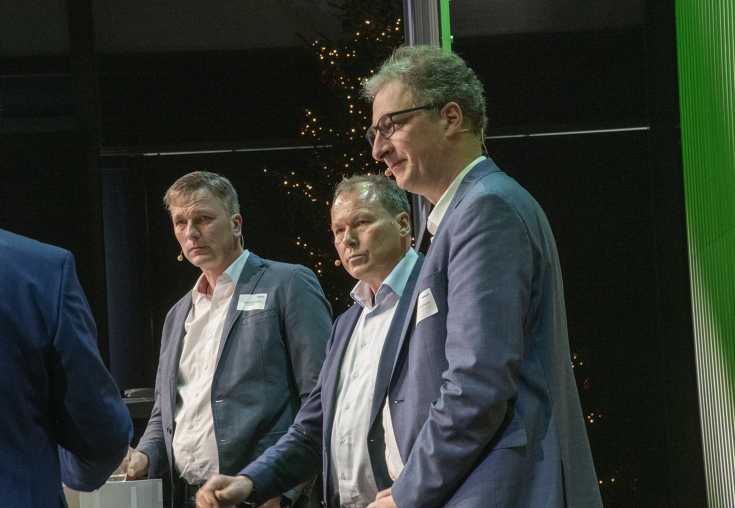
(ltr) Sebastian Bröker, Hubert Loick and Franz Obermayer focus on green energy
Many farms have already built up a second income through energy production. Sebastian Bröker from Münsterland has joined forces with two neighbouring farms. Together they produce high-purity biomethane from manure, contributing to the renewable energy supply. Hubert Loick from the Ruhr region is also committed to biogas. In addition to his farming business, he runs an energy company that operates more than 40 biogas plants across Germany. Farmer and IT entrepreneur Franz Obermayer from Bavaria combines agri-photovoltaics with arable farming on his organic farm.
Innovation farming: How agricultural machinery manufacturers are strengthening their ability to innovate for the long term
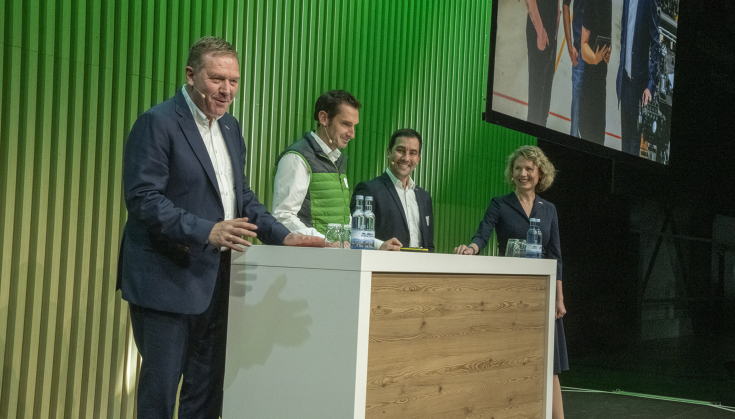
(ltr) Christoph Gröblinghoff (Chairman of the Fendt Management Board), Thomas Enghof (Head of Central Planning Production Fendt) and Josef Mayer (Head of Transmission Development, Vehicle Testing & Prototyping Fendt) reported on which influences are important for innovations
Innovation is crucial if an agricultural machinery manufacturer is to maintain and even strengthen its position in the market in the long term. This applies equally to products and manufacturing. Christoph Gröblinghoff (Chairman of the Fendt Management Board), Thomas Enghof (Head of Central Planning Manufacturing Fendt) and Josef Mayer (Head of Transmission Development, Vehicle Testing & Prototyping Fendt) report that it takes more than creative minds to implement product innovations in production.
The rural shrimp: Delicacies from Hessen
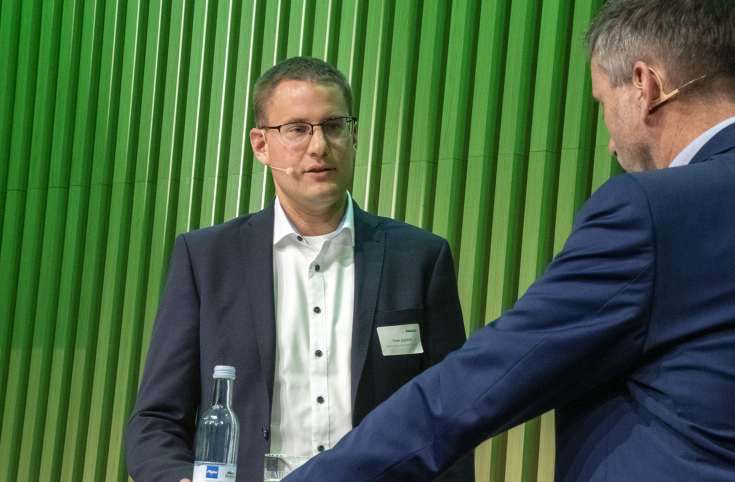
Sven Damm now uses his former pigsties to breed shrimps
Together with his wife Christine, Sven Damm has transformed the former arable and pig-fattening farm in the Schwalm-Eder district of Hesse in an unusual way. Where pigs used to be fattened, there are now large tanks in which he breeds shrimp. The move into aquaculture was a bold one, but the farm is now so well established in the region and producing high-quality products that he is considering a second location.
All under one roof - cow welfare, milk and oat drink
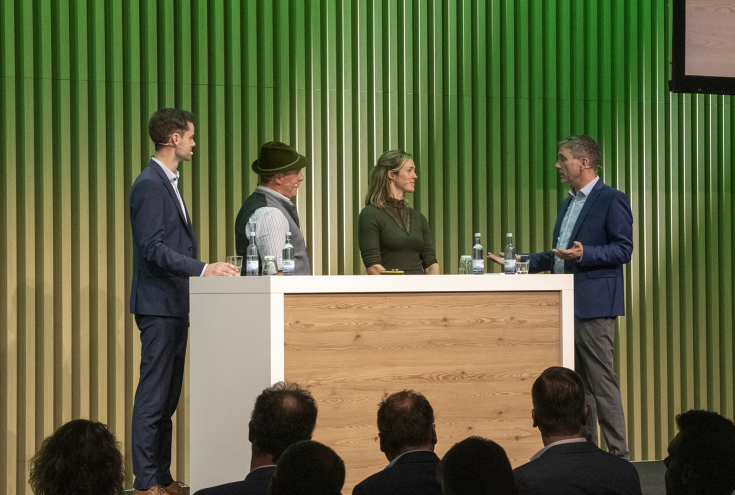
(ltr) Henning Fockenbrock and Kathrin and Thomas Stadler keep dairy cattle out of conviction
Kathrin and Thomas Stadler keep dairy cattle and run a livestock farm out of conviction and enthusiasm. To better position themselves for the future and modernise their farming methods, they invested in animal welfare and new technology such as milking robots, an automatic feed pusher and a manure suction robot. What used to be 37 cows in a tethered barn is now 70 cows in a welfare barn.
Henning Fockenbrock, on the other hand, is one of the three "Ährenbrüder" from Münsterland. On their farm, which has its own dairy, they produce both milk and an oat drink for the region and sell the vegan oat drink in local supermarkets. In this way, they cover several customer groups at the same time.
From farm boy to star chef
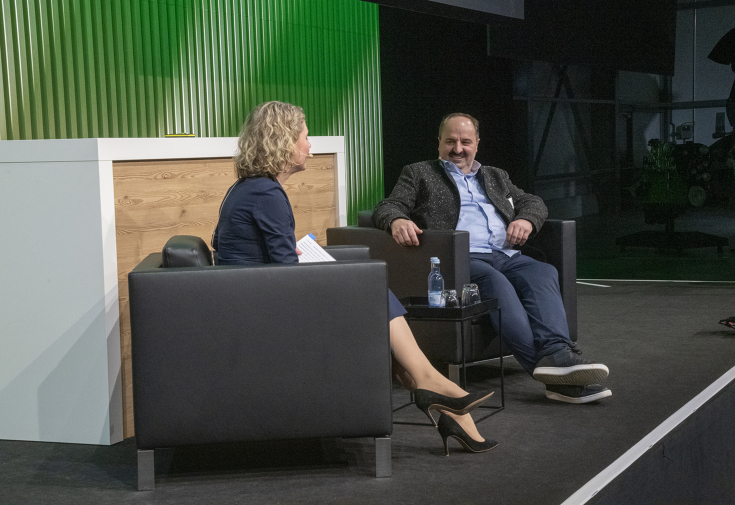
Johann Lafer talks to Manja Morawitz (Head of Public Relations and Corporate Communications Fendt) about his career from farmer's son to famous chef
Chef, TV star, author and entrepreneur are just some of Johann Lafer's many roles. Less well known are his roots on a farm. "As a chef, I depend on farmers like you," he says to the panel. "A poor product cannot become a delicacy, and you all work with such passion and conviction for quality food. Only with good food can you do any job well".
Based on this conviction, Johann Lafer calls on schools to cultivate a taste for good food in children, for example through flavour and cooking weeks like some European countries already have. He sees contact with agriculture and good products as an important educational task. "The great art of cooking is the joy and curiosity to conjure up something special from simple ingredients. A good basic knowledge of quality and preparation methods is the basis for success in cooking - as in any job," recommends Johann Lafer.
Impressions from the 3rd Sustainability Forum

